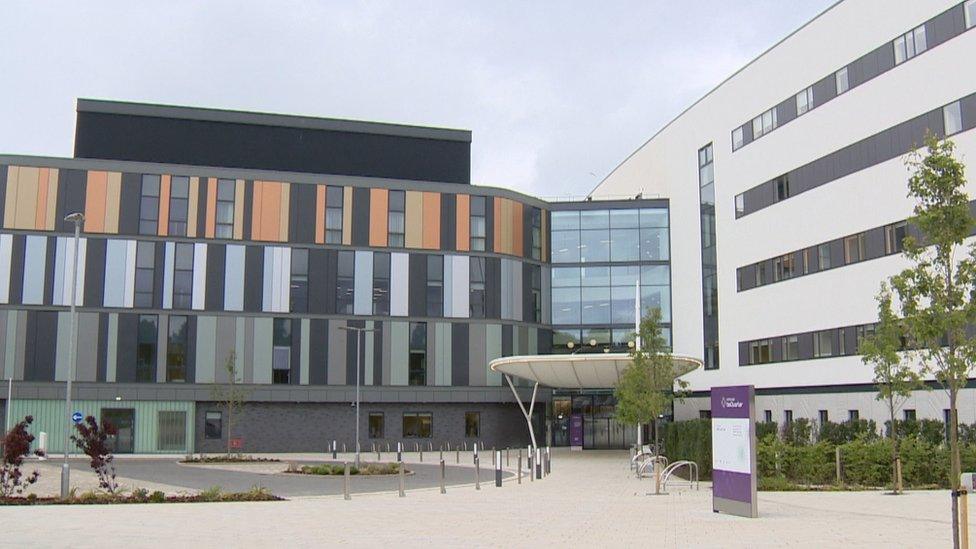Health Secretary refuses to rule out 'special measures' option for NHS Glasgow
- Published
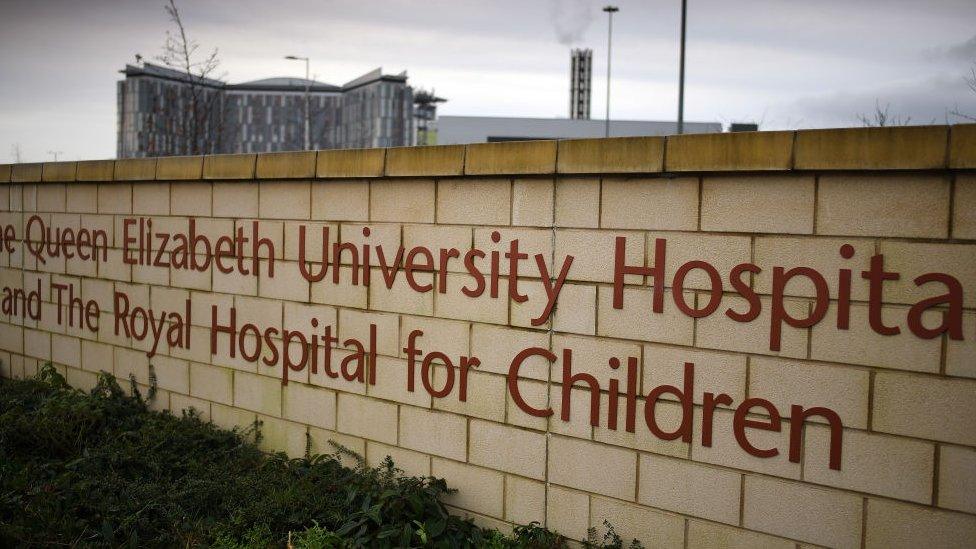
The Queen Elizabeth University Hospital and the Royal Hospital for Children share a campus in the south of Glasgow
Scotland's health secretary has refused to rule out government intervention at an under-fire health board.
Jeane Freeman is facing calls to put NHS Greater Glasgow and Clyde (NHSGGC) into special measures following the deaths of two children in 2017.
Both were treated in a ward in a Glasgow hospital which was later closed because of problems with the water supply, according to newspaper reports.
Ms Freeman said she would make a statement to parliament this week.
Both children were patients at the Royal Hospital for Children at the Queen Elizabeth University Hospital campus in Glasgow.
A three-year-old boy who was being treated for a rare genetic disease died on 9 August 2017. Milly Main, 10, died three weeks later while recovering from leukaemia treatment.
Last week Milly's mother told BBC Scotland that she was "100%" convinced her death was linked to water contamination issues.
It emerged on Sunday that police have investigated the death of the young boy and a report had been passed to the procurator fiscal.
NHSGGC said they had fully investigated and shared their findings with the boy's family but the child's mother later described the board's media statement as "highly inaccurate".
Separately, the board has insisted it was impossible to determine the source of Milly's infection because there was no requirement to test the water supply at the time.
Ms Freeman told BBC Radio Scotland's Good Morning Scotland that she only learned of the young boy's death at the weekend.
She described both deaths as "absolutely tragic" but claimed the difference between the two was that the boy's parents were fully informed by the board about what had happened and the causes of his death.
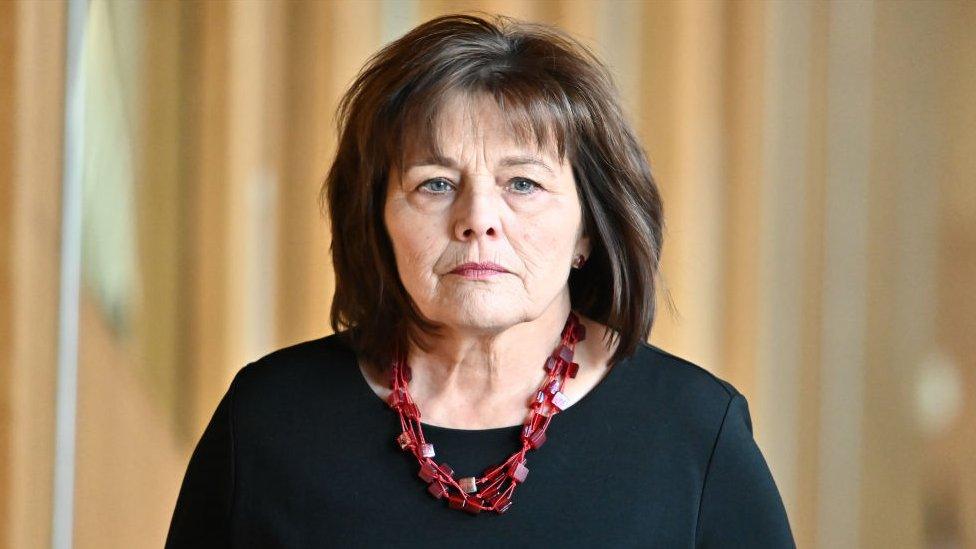
Health secretary Jeane Freeman will make a statement in the Scottish Parliament this week
The health secretary said the child's mother wrote to her at the weekend and said she had acted on the information in a bid to get answers.
Asked about putting the health board into special measures, Ms Freeman said she would make a statement to the Scottish Parliament later this week.
The powers were last used on NHS Tayside in 2018 and mean the Scottish government takes a more direct role in management.
Ms Freeman said it was not appropriate to elaborate but, pressed on whether it was an option, she replied: "It's always an option. It's something that we've done before in other cases, so of course it's an option to look at how we escalate any board.
"By escalation, that means that the government takes a more interventionist role."
'Tell the truth'
The health secretary also said she had a "great deal of concern" over the way the cases were handled.
Anas Sarwar, the MSP who went public with details of Milly's case after being contacted by a whistleblower, has written to the Holyrood's health and sport committee to call for NHSGGC board chiefs to be forced to answer questions about water contamination.
Mr Sarwar said: "Health board chiefs have tried to cover this up, and they need to urgently appear before MSPs, answer questions about the scale of the crisis, tell the truth, apologise to the whistleblower and staff for attacking them, and apologise to patients, parents and the public."
Ms Freeman is due to appear before the committee on Tuesday.
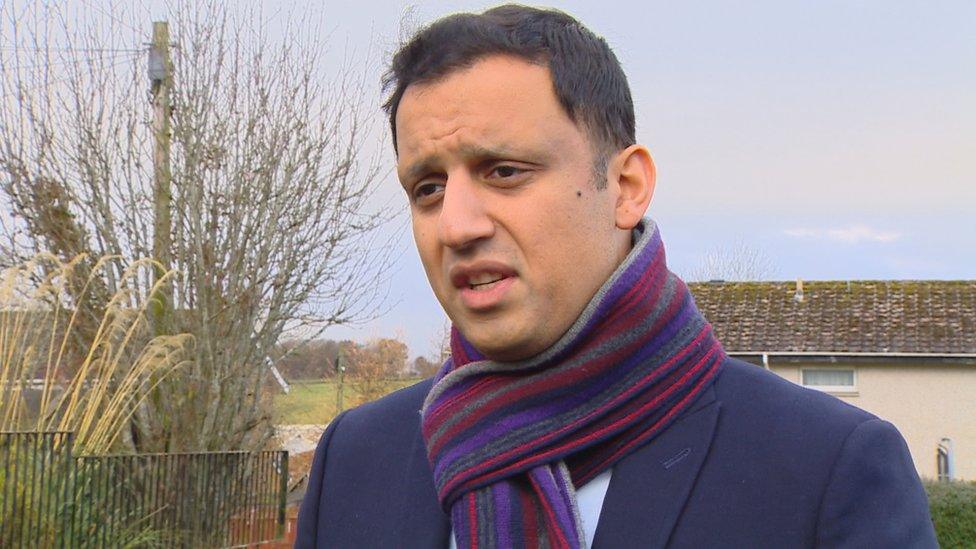
MSP Anas Sarwar has described the health board as "not fit for purpose"
In response to reports about the boy's death and the police investigation, NHSGCC spokesman said: "We have already provided information to this family but are sorry that they have further questions.
"We fully investigated this child's death at the time and also asked for two independent experts to investigate the case, the outcome of which has been communicated to the family.
"We are absolutely committed to providing patients and families with information and ensuring they get answers to the questions they have. In this case the full findings were shared with the family."
Legal action
But on Sunday Labour's health spokeswoman Monica Lennon said she had been in contact with the child's mother.
Ms Lennon said: "She believes the statement issued by NHSGGC in response to media reports about her son is highly inaccurate.
"She disputes the accuracy of their investigations and reports and is in receipt of documentation that confirms bacteria was present in the showerhead within her son's hospital bathroom."
The MSP said that when the mother last met with NHSGGC she walked out of the meeting and advised them she would be taking legal action.
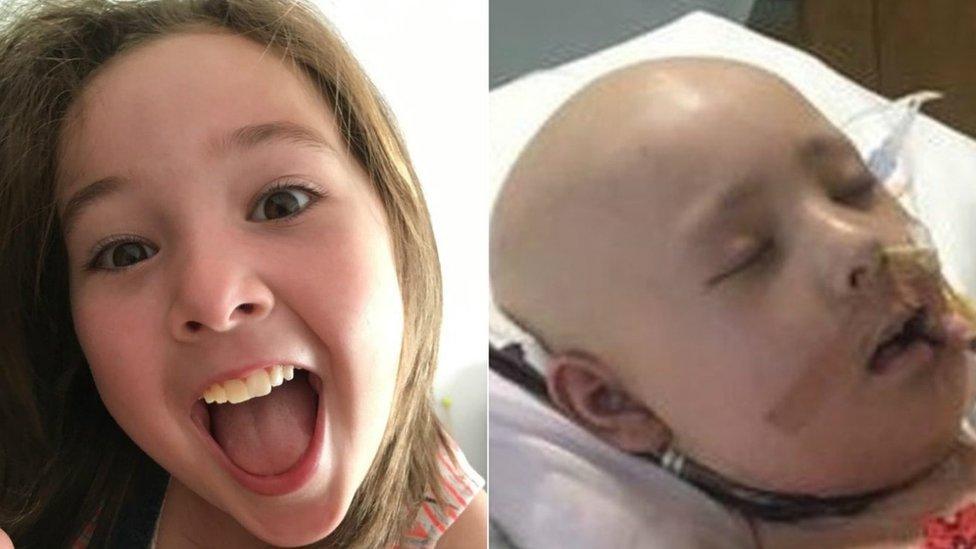
Milly Main contracted an infection while recovering from a stem cell transplant in Glasgow
A whistleblower had earlier revealed that a doctor-led review, external had identified 26 infections at RHC during 2017 which were potentially linked to contaminated water.
The £842m Queen Elizabeth University Hospital "super hospital" has faced a number of problems since it opened in 2015.
Two cancer wards at the adjoining children's hospital were closed last year amid concern about infections and investigation of water supply issues, with patients decanted to the adult hospital.
In January it emerged that two patients at the QEUH had died after contracting a fungal infection linked to pigeon droppings.
- Published17 November 2019
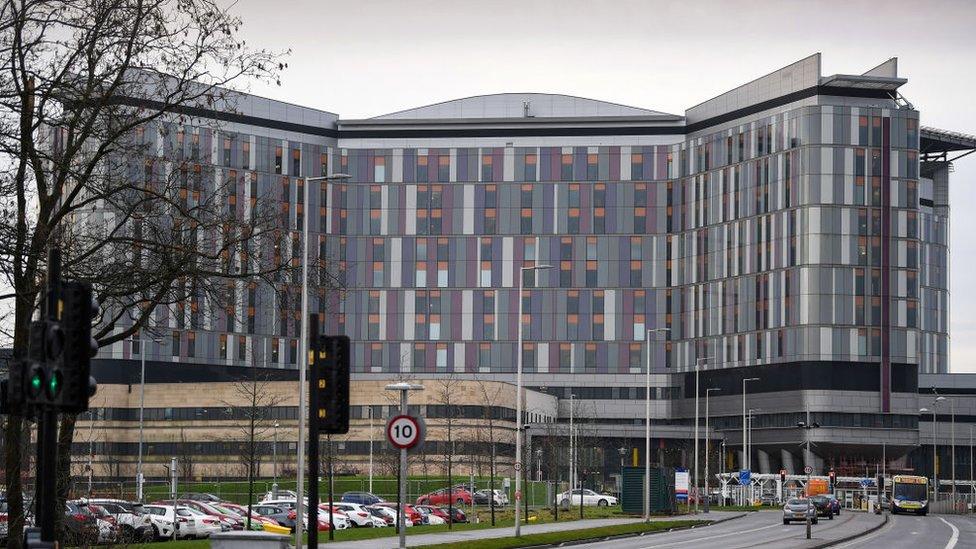
- Published16 November 2019

- Published15 November 2019
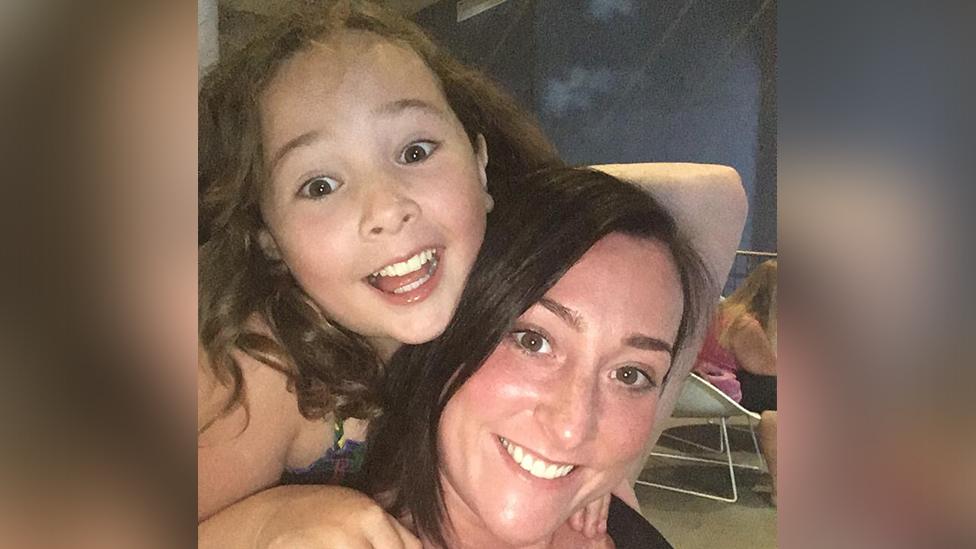
- Published15 November 2019
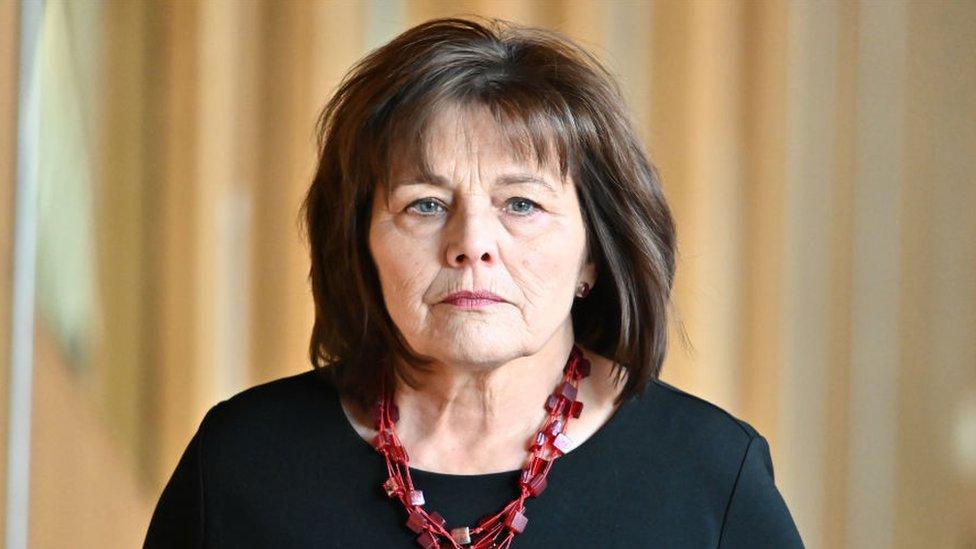
- Published14 November 2019
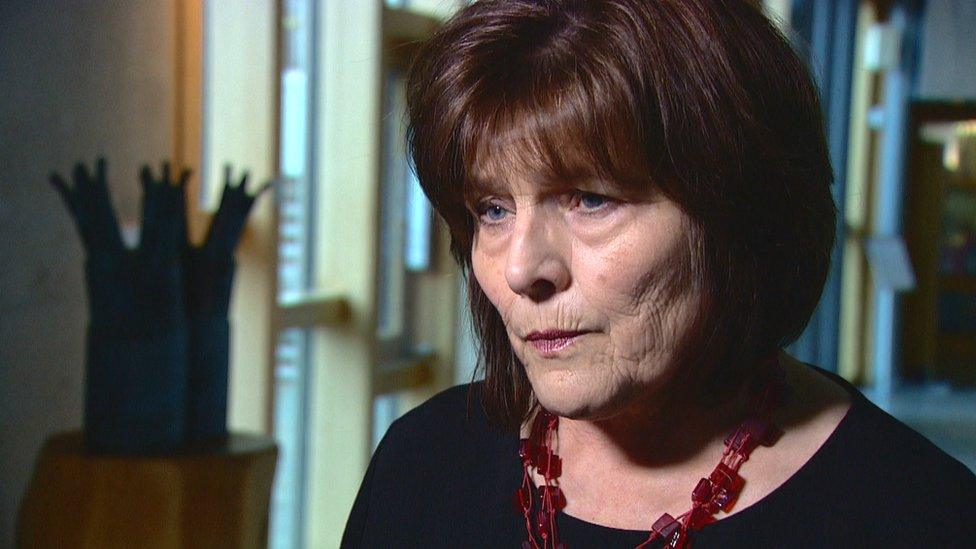
- Published17 September 2019
